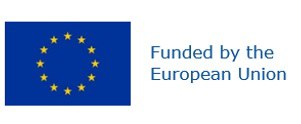NOVASOIL - Innovative business models for soil health
The general objective of NOVASOIL project is highlight the benefits for the society and the environment from the investment in soil health. The main expected outcome of the project is a toolbox for the analysis of suitability of different business cases that promote soil health. This toolbox will be based on a set of good examples from Europe and other countries and the needs and demands from the society. The toolbox will include a categorisation of the models and business cases taking into account: a) sustainable soil management under different land uses and climatic conditions; b) products based on practices promoting soil health; c) consumption and certification practices conductive: d) the reuse of land and e) sustainable soil management in the context of the EU Taxonomy Regulation.
For that, NOVASOIL is composed by a multidisciplinary team with a large experience on European and national projects focus on soil health and business models. As well as, NOVASOIL will built a Community of Practice around project objectives in order to co-develop soil health business models and the tool-box for incentives taking into account their needs and demands.
NOVASOIL is organised in 5 WPs plus coordination following the expected objectives and impacts of the call. The first step is to develop a conceptual framework of soil health and business. This framework will nurture other WPs in order to develop in the same way all the expected objectives. The soil health business models will analyse current successful experiences in Europe and outside Europe in order to categorise them taking into account their variability. In addition, NOVASOIL includes 13 Case Studies with business models that promote soil quality and products based on sustainable crop and soil management.
On the other hand, an analysis of current policies related will be carried out in order to provide suggestions and improvement that facilitate the implementation of these soil health business.
 |
Funded by the European Union. Views and opinions expressed are however those of the author(s) only and do not necessarily reflect those of the European Union or European Research Executive Agency (REA). Neither the European Union nor the granting authority can be held responsible for them |
Project details
Scientific responsability: Fabio Bartolini
Funding source: HORIZON EUROPE
Call: HORIZON-MISS-2021-SOIL-02-05
Start date: 01/11/2022 - end date: 31/10/2025
EU contribution: 4.388.915,00 €
EU contribution to UniFe: 344.500,00 €
Participants
- EVENOR TECH SL (Evenor), Spain
- LEIBNIZ-ZENTRUM FUER AGRARLANDSCHAFTSFORSCHUNG (ZALF) e.V. (ZALF), Germany
- ZEMNIEKU SAEIMA (ZSA), Latvia
- NEW BULGARIAN UNIVERSITY, Bulgaria
- UNIVERSITY OF LEEDS (UNIVLEEDS), United Kingdom
- CENTRE NATIONAL DE LA RECHERCHE SCIENTIFIQUE CNRS (CNRS), France
- KOBENHAVNS UNIVERSITET (UCPH), Denmark
- TECHNISCHE UNIVERSITAET MUENCHEN (TUM), Germany
- ASSEMBLEE DES REGIONS EUROPEENNES FRUITIERES LEGUMIERES ET HORTICOLES (AREFLH), France
- ISTITUTO DELTA ECOLOGIA APPLICATA SRL (ISTITUTO DELTA SRL), Italy
- UNIVERSITA DEGLI STUDI DI FERRARA (Unife), Italy
- WAGENINGEN UNIVERSITY (WU), Netherlands
- EESTI TAIMEKASVATUSE INSTITUUT (ESTONIAN CROP RESEARCH INSTITUTE), Estonia
- UNIVERSIDAD POLITECNICA DE MADRID (UPM), Spain
- UNIVERSITA DI PISA (UNIPI), Italy
- ASOCIACION AGRARIA JOVENES AGRICULTORES DE SEVILLA (ASAJA), Spain
